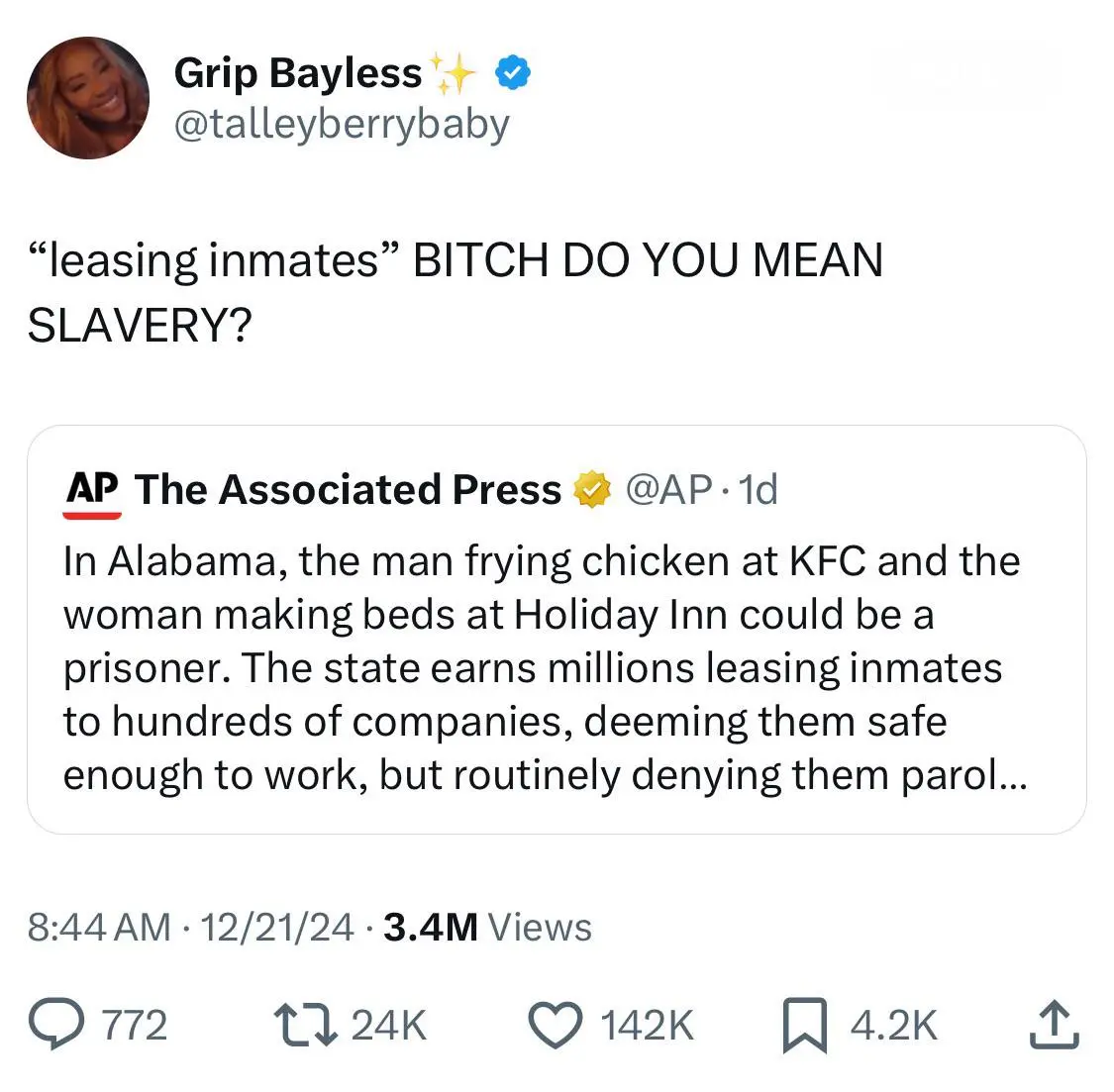Leasing inmates
Leasing inmates


No state has a longer, more profit-driven history of contracting prisoners out to private companies than Alabama. With a sprawling labor system that dates back more than 150 years — including the brutal convict leasing era that replaced slavery — it has constructed a template for the commercialization of mass incarceration.
Most jobs are inside facilities, where the state’s inmates — who are disproportionately Black — can be sentenced to hard labor and forced to work for free doing everything from mopping floors to laundry. But more than 10,000 inmates have logged a combined 17 million work hours outside Alabama’s prison walls since 2018, for entities like city and county governments and businesses that range from major car-part manufacturers and meat-processing plants to distribution centers for major retailers like Walmart, the AP determined.